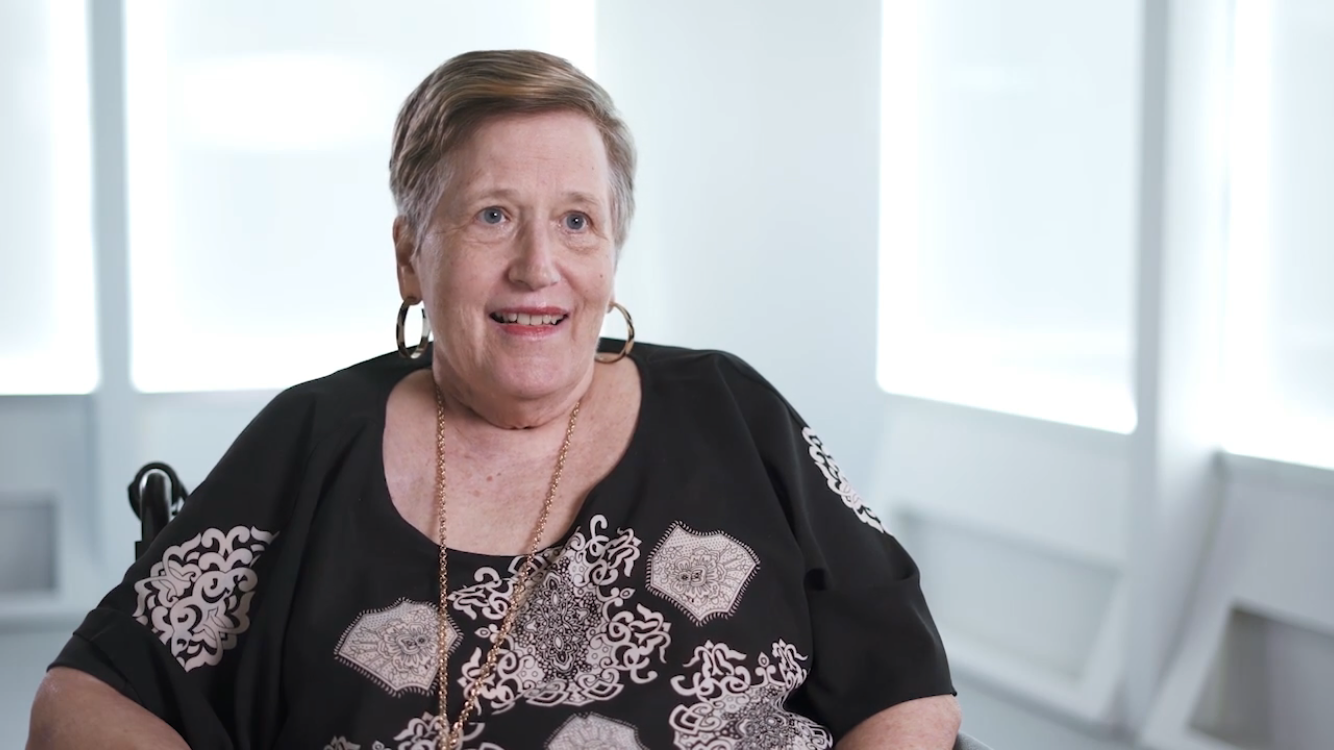BSC Alumna Fights to Increase Awareness of Life-Threatening Complication
BSC Alumna Fights to Increase Awareness of Life-Threatening Complication
On a summer morning in June 2017, Barbara Quackenbush ’65 was scheduled to be taken off life support. Diagnosed with sepsis, she’d been in the ICU at Houston Methodist Hospital for nearly a month and in a coma for 10 days.
Friends and family had come to the hospital to say their goodbyes. Quackenbush’s husband David sat by her side and said, “Do you know who I am?”
She did. She couldn’t open her eyes but she could hear the question. She nodded.
“Shake your head when I get to your age,” he said.
He slowly said a series of numbers until he got to the right one and Quackenbush nodded her head again. She knew her age.
And she wasn’t ready to go.
Sepsis is a life-threatening complication that happens when chemicals released in the bloodstream to fight an infection trigger inflammation throughout the body. This extreme response can lead to tissue damage, organ failure, and death.
According to the Centers for Disease Control and Prevention, at least 1.7 million adults in America develop sepsis each year, and nearly 270,000 die as a result.
Recovery hasn’t been easy – during the initial ordeal and since, Quackenbush has endured numerous surgeries, including the amputation of her hands and her toes – but she is determined to use her experience for good, pushing for increased awareness of sepsis. Quackenbush shared her experience in a video produced by Methodist Hospital as part of the hospital’s sepsis awareness program.
“It was a miracle that I survived. I was that close to the end,” Quackenbush says.
Life After BSC
Pushing past the odds isn’t new for Quackenbush. She graduated from BSC in the mid-60s, when women were still expected to go on to be secretaries or teachers before marrying and raising a family.
After graduation, Quackenbush moved to Houston and took a job as a secretary with Dr. Michael DeBakey, a renowned heart surgeon.
Wanting more of a challenge, Quackenbush became a legal secretary and went to work for the Houston law firm Vinson & Elkins. The experience gave her the confidence to apply to the University of Houston Law Center, and she enrolled in 1971. She attended school at night while working full-time.
After graduating law school in 1975, Quackenbush was one of the first few women attorneys practicing transactional law in Houston. She became the third woman attorney at Vinson & Elkins. When she and her husband had their first child in 1980 (followed by their second son in 1982), there were no maternity policies in place, and Quackenbush was the first woman attorney at the firm to have a child.
Before retiring in 2011, Quackenbush’s professional experience included stints as a partner in several Houston law firms, vice president and assistant general counsel for Mellon Mortgage Co, and the team lead for Global Real Estate and Facilities Law at ExxonMobil. Some of her career experience is included in the 2008 book Rough Road to Justice: The Journey of Women Lawyers in Texas.
Life after Sepsis
In the time since her near-death experience, Quackenbush has worked through mobility issues, such as learning new methods for feeding herself and using voice-activated technology, and is adjusting to a “new normal.”
Even in the midst of learning a different way of life – and for David Quackenbush, responsibilities as a caretaker – the Quackenbushes have committed to helping others avoid what they’ve been through.
In the video for Houston Methodist, the couple share their heart-wrenching experience – the long days of not knowing what would come next—and Barbara ends with a clear, practical message.
“Pay attention to symptoms such as confusion, vomiting, or low-grade fever, and if you get these symptoms, get to the emergency room immediately.”
In addition to raising sepsis awareness, Quackenbush is equally driven to leave a positive impact through philanthropy on the places—such as BSC, the Law Center in Houston, and the couple’s home church St. Martin’s Episcopal Church—that mean the most to them.
Quackenbush said she wants for her alma mater what she has strived for herself:
“I want Birmingham-Southern to not only survive but to thrive.”


